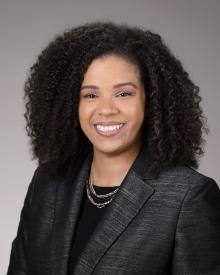Job Title
Program Director
Image
Image

Office
Office of Neural Exposome & Toxicology
Division
Division of Translational Research
Areas of Interest
Neural Exposome, Refractory Epilepsy, Chemical Threats, and Dual use Research of Concern (DURC)
Contact
Contact Email
Contact Number
Dr. Shardell Spriggs manages a portfolio of basic and translational research grants for the CounterACT program focused on understanding the brain and developing better therapeutics following neurotoxic chemical exposures. She also manages the Epilepsy portfolio for the NINDS IGNITE Program. Her background is in Chemistry, Biochemistry and Structural Biology.
